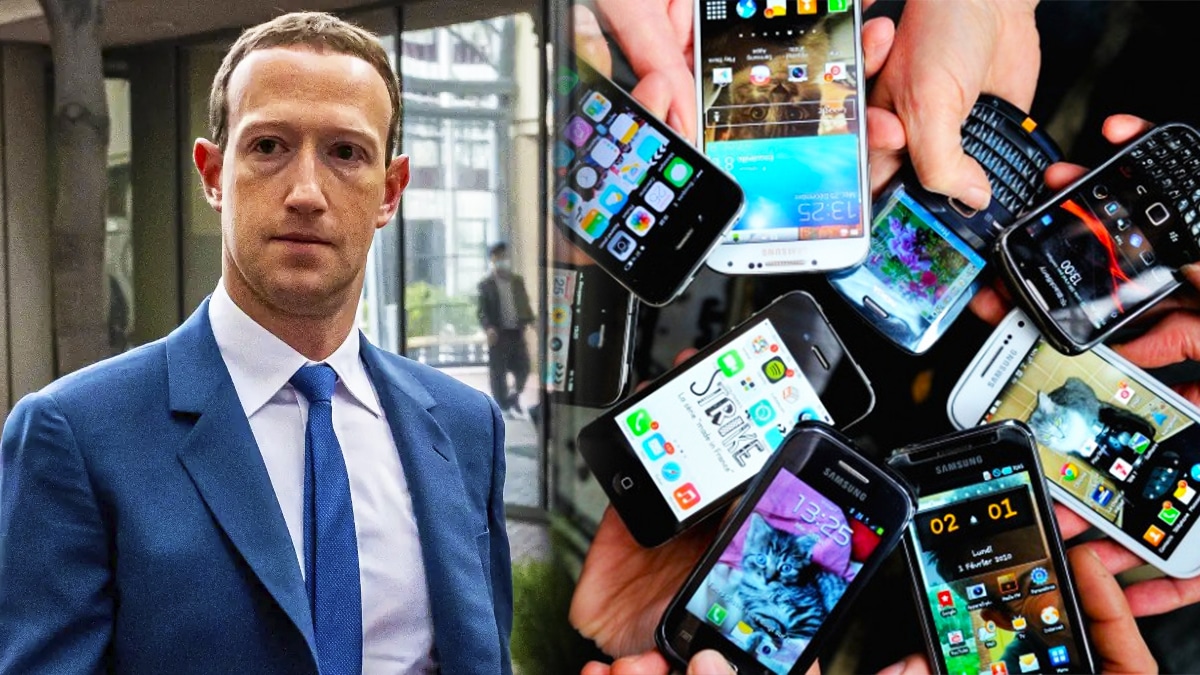The tech landscape stands on the brink of a revolutionary shift as Mark Zuckerberg predicts the end of smartphones within this decade. The Meta CEO’s bold vision suggests smart glasses will become our primary digital interface by 2030, rendering traditional mobile phones obsolete. This transformation promises to reshape how we interact with technology and each other in profound ways.
Smart glasses : the future that will replace smartphones
According to Zuckerberg, smart glasses represent the next major computing platform that will gradually push smartphones into obsolescence. “The transition will happen similarly to how computers evolved,” he explains, drawing parallels to how desktop computers once dominated before smartphones claimed supremacy. The Meta founder believes we’re approaching another pivotal shift in digital technology.
This transformation won’t happen overnight. Zuckerberg predicts a gradual transition where “smartphones will spend more time in pockets than in hands.” The change will likely accelerate as smart glasses technology matures and offers more intuitive ways to interact with digital content. For consumers already overwhelmed by constant notifications, this shift could provide welcome relief from the digital clutter that plagues modern communication tools.
Meta’s Ray-Ban Stories, launched in 2021, represent an early step toward this future. These fashionable frames integrate a 5-megapixel camera, dual speakers, and triple microphones. While current models offer limited functionality compared to smartphones, they demonstrate the potential direction of wearable technology. Future iterations promise expanded capabilities that could eventually match or exceed what phones currently provide.
FeatureRay-Ban Stories (Current)Future Smart Glasses (Predicted)Camera5MP12MP+ with AR overlayAudioBasic speakersSpatial audio with noise cancellationConnectivityRequires smartphoneIndependent cellular/WiFiInterfaceVoice commandsNeural/gesture controls
Why smart glasses will succeed where smartwatches failed
When smartwatches appeared in 2012, many predicted they would eventually replace smartphones. Twelve years later, this revolution hasn’t materialized. Instead, smartwatches have carved out a niche primarily as fitness accessories rather than comprehensive smartphone alternatives. Zuckerberg acknowledges this reality, stating that “smartwatches will forever remain sport gadgets” without replacing our primary devices.
Smart glasses, however, offer distinct advantages that could drive broader adoption :
Seamless integration into daily activities without requiring hands
Immersive visual experiences through augmented reality overlays
Natural interaction methods using voice, gestures, and eventually neural interfaces
Less intrusive notifications that appear within your field of vision
Potential for more natural social interactions compared to staring at phone screens
These advantages address fundamental limitations of smartphones rather than merely repackaging their capabilities. Where smartwatches essentially miniaturized phone features, smart glasses offer genuinely novel ways to interact with digital content. This distinction could prove crucial for mass adoption. However, security concerns remain, particularly as digital platforms already struggle with fraud and security issues.
The technology race for the next computing platform
Meta isn’t alone in pursuing this vision. Numerous tech giants and startups are developing their own smart glasses, hoping to dominate this emerging category. Companies like Apple, Google, and Snap have all invested heavily in augmented reality eyewear. Even traditional players in the smartphone market are exploring this space, recognizing its potential to disrupt their core business.
This competition echoes previous technological transitions. Just as various companies competed to define the smartphone era, today’s tech leaders are positioning themselves for the next paradigm shift. The stakes are enormous, potentially reshaping trillion-dollar industries and redefining how we access information and connect with others.
Zuckerberg acknowledges that success isn’t guaranteed, noting that “time will make or break” this technology. Smart glasses must prove their utility and effectiveness to convince skeptical consumers. Many technical challenges remain, including battery life, processing power, and developing intuitive interfaces. Privacy concerns also loom large, as glasses with built-in cameras raise questions about surveillance and consent.
The integration of artificial intelligence will likely play a crucial role in making smart glasses truly useful. AI assistants could anticipate needs, filter information, and provide contextually relevant data without overwhelming users. This combination of wearable hardware and intelligent software could create experiences that feel magical rather than merely convenient.
Transforming digital interactions and productivity
Beyond replacing smartphones, smart glasses could fundamentally change how we access and process information. Imagine searching for information without typing or speaking – simply looking at something and receiving relevant details instantly. This capability could transform everything from shopping to education to professional work.
For productivity enthusiasts, these devices might enable new workflows that blend seamlessly with physical activities. The methods used by innovators like Bill Gates and Elon Musk could evolve further with technology that augments cognition without demanding attention.
The implications extend to content creation as well. Just as photo editing technologies have transformed visual media, smart glasses could enable new forms of mixed-reality content. Creators might design experiences that blend digital elements with physical spaces, viewed through these devices.
Information discovery could also evolve beyond current search paradigms. While platforms like Reddit explore becoming search engines, smart glasses might enable contextual discovery based on location, activities, and personal preferences. This shift would represent the next evolution in how we find and consume information.
As we approach 2030, Zuckerberg’s prediction will be tested against technological progress and consumer preferences. Whether smartphones truly disappear or simply evolve into different forms remains to be seen, but the trajectory toward more integrated, wearable technology seems increasingly clear.

